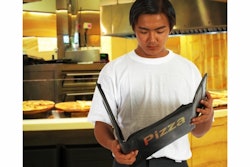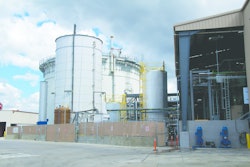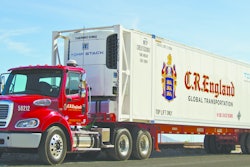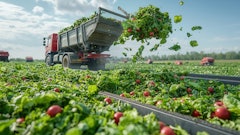Here's an interesting article from The Guardian in the United Kingdom that looks into what some restaurants in the country are doing to try and cut costs and reduce food waste, including a discussion about a pilot scheme called FoodSave that was launched and funded by the Mayor of London in partnership with the European Regional Development Fund and the London Waste and Recycling Board.
From behind the kitchen door it sounded as if something had been kicked over. Pans were crashing, plates were smashing and utensils flying. Expletives – lots of them strung together like brutal poetry – were most definitely flying. I was meeting a chef friend for a mid-morning coffee at his restaurant and tried to ignore the ruckus as I waited in the empty dining room. Silence finally fell, and he appeared, his cheeks still flushed. "Sorry about that," he said, sadness and anger in his big French eyes, "I found a potato in the bin."
The best chefs tend to be fanatical about food waste. It's drilled into them throughout their training. To throw away food unnecessarily is to throw away money. Maintaining a good GP (gross profit) is both a badge of honor and a professional necessity.
The equivalent of £1.7 billion worth of good food being wasted by restaurants and food service operations. It's wasted food, but also wasted money – and now the hospitality industry is searching for ways to reduce their waste. Last November a pilot scheme called FoodSave was launched, funded by the Mayor of London in partnership with the European Regional Development Fund and the London Waste and Recycling Board. For the restaurants who are taking part in the scheme with the help of the Sustainable Restaurant Association, that means installing a waste auditing system right in their very kitchen.
Statistics from WRAP suggest that on average 21 percent of food waste in restaurants arises from spoilage, 45 percent from food preparation and 34 percent from food that comes back on punters' plates. The Winnow system has a calibrated steel bin that weighs whatever food is put in it. It's connected to a touchscreen display with everything that gets thrown away initially categorized as lost either to 'inventory or spoilage damage', 'trimmings', 'cooking error', 'prepared not served' or 'plate waste'.
There is then a second level of categorization such as 'breads', 'dairy', 'fruit and veg', 'fish' and 'meat'. The software is customizable to each business – you could have different types and cuts of meat for instance, and a monetary value given to each category. In the case of 'bones and shells' that's nothing but they're still weighed so that the business can see how much their disposal is costing.
Stocktaking food waste doesn't sound particularly sexy, but if the enthusiasm of the system's early adopters is any indication, it's a very useful bit of kit. During the four-week trial, the first week is used to establish a baseline for the establishment in question, with any data collected then used to implement changes in the following weeks. That could mean changing food ordering patterns or reducing portion sizes.
"We didn't want them to think that it was a witch hunt where we were going to come in and point fingers," explains Fino proprietor, Eddie Hart of the decision to get involved in the trial. "We just thought that it was something interesting that we could do with the team so that we could learn."
"What sometimes is a bit of a problem is that all the food waste has to go in the same bin," say the SRA's Victoria Moorhouse, who is helping businesses implement the scheme. "Front of house plate waste has to go into the same bin as kitchen waste and that can sometimes be a challenge. We need them to stream everything together which can be a challenge both because of logistics and changing staff behavior – you're asking them to change a way of working that has become ingrained and that takes effort."
To read more, click HERE.

















